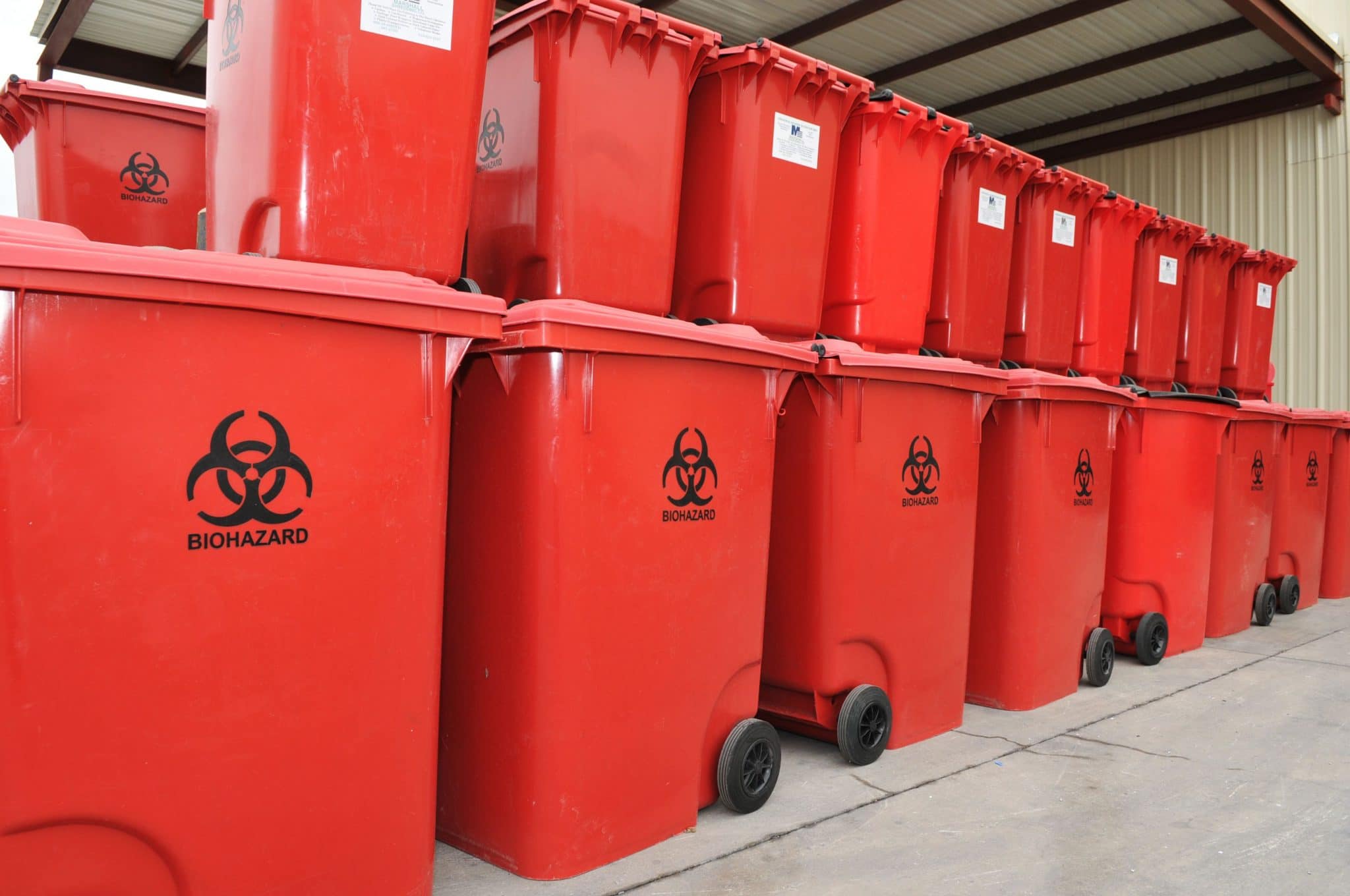Professional Medical Waste Disposal Services: Making Certain Compliance and Safety
Professional Medical Waste Disposal Services: Making Certain Compliance and Safety
Blog Article
Navigating Medical Waste Disposal: Essential Providers for Medical Care Facilities
In the detailed landscape of healthcare procedures, the management of medical waste is an essential aspect that demands meticulous attention. Health care facilities, whether small clinics or large hospitals, are handed over with the responsibility of handling, dealing with, and dealing with a large selection of clinical waste streams. The intricacies included in navigating through the regulatory requirements, guaranteeing proper waste segregation, and executing safe collection and transportation processes are paramount. Understanding the vital services that support clinical garbage disposal is not just a matter of conformity however additionally a basic component in protecting public wellness and ecological well-being. The ins and outs of this process are crucial for health care facilities, and the know-how used in this realm plays a crucial duty in preserving the stability of healthcare systems.
Regulatory Compliance Assistance
For medical care centers, making sure regulative compliance support is crucial to maintain proper handling and disposal of clinical waste. By partnering with regulatory compliance specialists, medical care facilities can stay current on advancing guidelines, reduce risks linked with inappropriate waste disposal, and eventually add to a much safer and more lasting setting for all.
Waste Partition Assistance

Healthcare centers need to give clear guidelines and training to staff on just how to segregate waste effectively. This consists of separating basic waste from harmful materials such as sharps, contagious waste, pharmaceuticals, and chemical waste. Color-coded containers, labels, and signage are generally utilized to assist in waste segregation practices. Normal audits and tracking of waste segregation procedures are important to identify any kind of problems and make needed enhancements.
Collection and Transportation Solutions

Proper collection and transport solutions are necessary elements of the clinical waste disposal procedure in healthcare centers. These solutions make sure that dangerous products are managed safely and in conformity with guidelines to safeguard both the environment and public wellness. Health care centers depend on specialized waste administration companies to give reliable collection and transportation services tailored to their demands.
Clinical waste collection includes segregating different kinds of waste at the factor of generation, utilizing color-coded bags or containers to compare general, hazardous, pharmaceutical, and various other waste streams. Trained employees need to perform this job to stop contamination and ensure correct disposal. Once collected, the waste is moved in specialized cars geared up to handle harmful materials securely. These cars stick to rigorous safety and security requirements and comply with marked paths to certified therapy centers for disposal through methods such as landfilling, incineration, or sanitation.
Therapy and Disposal Solutions
In the world of clinical garbage disposal for health care facilities, after the critical phase of collection and transport solutions, the emphasis moves in the direction of carrying out reliable therapy and disposal options. Therapy remedies often involve processes such as autoclaving, which uses steam under pressure to disinfect the waste. This view it now method is frequently made use of for infectious waste that needs to be rendered non-hazardous before disposal. One more common treatment method is incineration, where waste undergoes heats in regulated setups to minimize its volume and remove pathogens.
Disposal solutions incorporate the last action in the clinical waste management process. Reusing and source recuperation are also acquiring traction as sustainable disposal options for certain kinds of clinical waste materials.
Effective therapy and disposal remedies are critical in ensuring conformity with guidelines and guarding public wellness and the atmosphere. Healthcare centers must carefully evaluate and pick proper methods that straighten with their waste administration objectives and sustainability efforts.
Staff Training and Education And Learning

To successfully manage clinical garbage disposal in healthcare centers, comprehensive team training and education and learning play a crucial function in making certain adherence to regulative demands and preserving a secure setting. Correct training equips team with the expertise and abilities required to manage various types of clinical waste, segregate them appropriately, and package them firmly for disposal. By informing workers on the risks associated with inappropriate handling of medical waste, centers can reduce the probability of crashes, contamination, and governing violations.

Verdict
In conclusion, health care centers count on vital clinical garbage disposal solutions to ensure regulative conformity, correct waste segregation, secure collection and transportation, efficient therapy and disposal, along with personnel training and education. These services play a critical function in maintaining the wellness and safety and security of both healthcare workers and the general public, highlighting the significance of appropriate administration of clinical waste in medical care setups.
For healthcare facilities, making sure regulatory conformity assistance is vital to maintain appropriate handling and disposal of medical waste. this content Waste segregation includes categorizing various types of clinical waste to make sure proper handling, find this treatment, and disposal. This includes dividing general waste from hazardous products such as sharps, transmittable waste, drugs, and chemical waste.Medical waste collection involves setting apart various types of waste at the point of generation, using color-coded bags or bins to distinguish between general, dangerous, pharmaceutical, and other waste streams.In the realm of medical waste disposal for healthcare centers, after the vital phase of collection and transportation services, the focus moves in the direction of implementing reliable therapy and disposal remedies.
Report this page